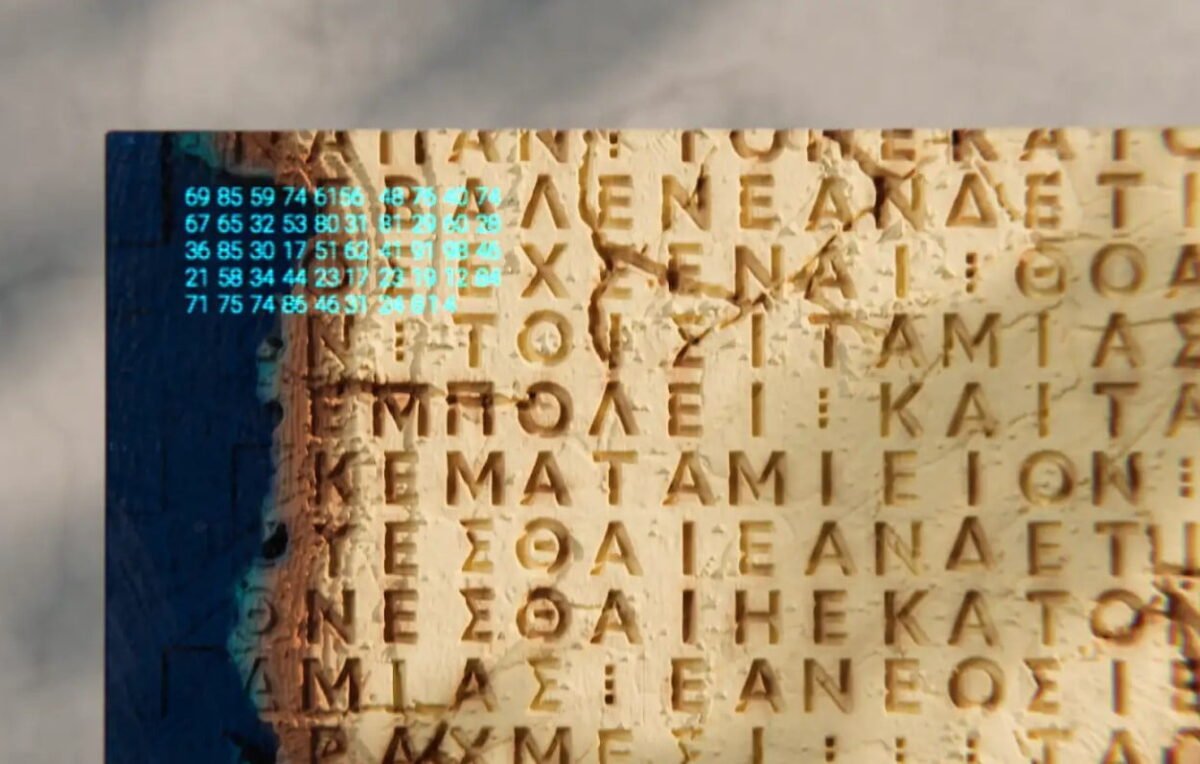Ithaca AI software will help historians better decipher, locate and date ancient texts.
The new AI model builds on a 2019 Deepmind research paper: The deciphering AI "Pythia", named after the oracle of Delphi, translates ancient Greek texts and makes translation suggestions sorted by probability.
The AI was trained with a digital dataset of Greek inscriptions and was able to significantly outperform humans in tests at the time. AI translations were about 70 percent correct, while epigraphs achieved 43 percent.
Even then, however, the AI model is a tool for human professionals. It is not meant to replace them.
Ithaca expands Pythia and strives for transparency
This also applies to the new transformer-based AI model, named after the Greek island of Ithaca from Homer's Odyssey. It extends the analysis possibilities for historians by space and time:
- In addition to assisting with translations of historical Greek inscriptions,
- the new model hypothesizes when texts were written down within the time span between 800 BC to 800 AD,
- and where they were written down, distributed over 84 ancient regions, including visualization on a map.
Ithaca is trained with a dataset of 78608 ancient Greek inscriptions. Each inscription is tagged by historians with metadata about time and place. Based on the patterns in this dataset, Ithaca then analyzes new inscriptions.
Ithaca takes into account both whole words and individual characters in the text analysis, so that word sequences such as "Once upon a time", which in their context mean more than the individual words, can be translated correctly.
The AI model creates transparency by means of a so-called saliency map: The computer vision technology visualizes with different color intensities which sequences play a more or less strong role in the prediction of text, place and date.
Decoding ancient knowledge faster
According to Deepmind, Ithaca achieved 62 percent accuracy in recovering historical texts in tests Historians managed an accuracy of only 25 percent without machine help. Working with the AI models, they achieved 72 percent accuracy.
Ithaca achieved an accuracy of 71 percent for the location, and the AI was able to correctly assign the time within a time span of less than 30 years. Important texts of classical Athens could thus be re-dated, which is a significant contribution to the scientific debate in ancient history, the Deepmind researchers write.
Further, Deepmind's researchers see Ithaca as a strong example of the potential of a human-AI collaboration and of using artificial intelligence to accelerate progress in other sciences. Other examples of this science boost through AI exist in the fields of materials science, mathematics, and nuclear fusion.
"We believe this is just the start for tools like Ithaca and the potential for collaboration between machine learning and the humanities," the Deepmind team writes.
It is already planning to expand the AI model to include other ancient languages, such as Latin and Maya. In addition to inscriptions, other written media such as papyri and manuscripts could also be analyzed.
The model trained so far and the research results are publicly available: Ithaca is available as an open-source model and as an interactive version in the browser.
